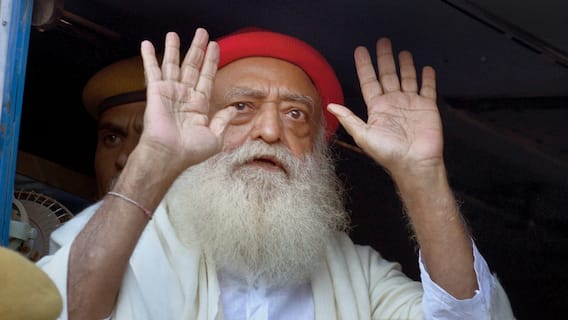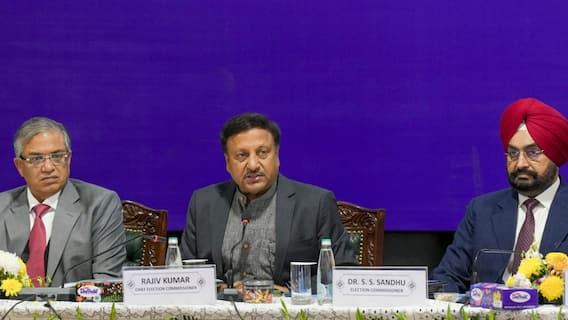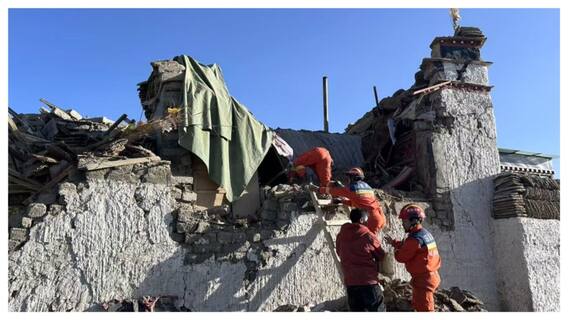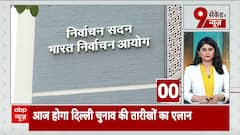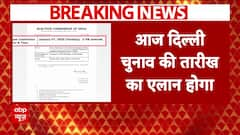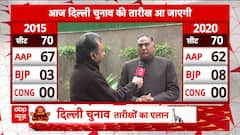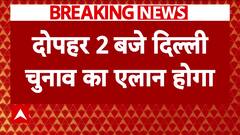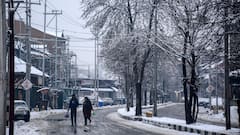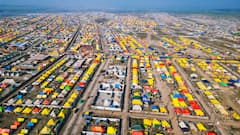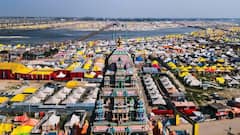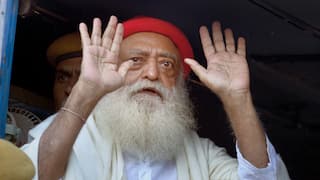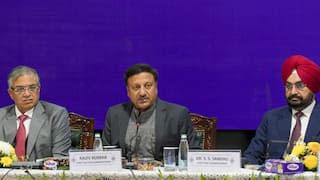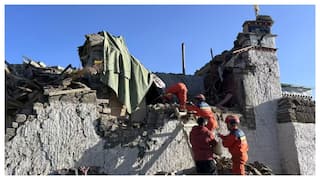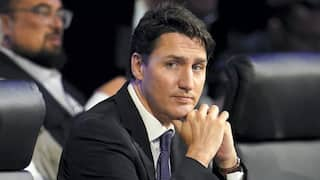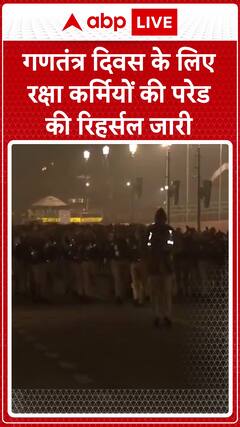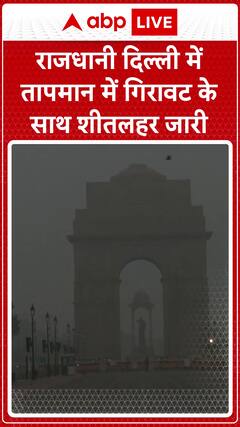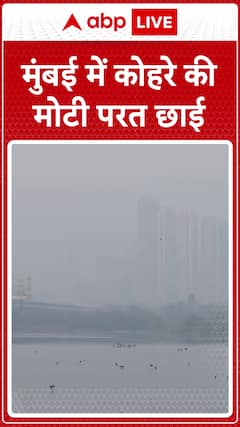Bengal Polls, Antilia Case To Pegasus & Farm Laws Withdrawal — Top Political Events That Defined 2021
Year Ender 2021: Despite Covid, there was no shortage of action in the political sphere, with Mamata Banerjee's thumping win in the Bengal election and the Pegasus snooping row grabbing headlines.

New Delhi: With a major chunk of 2020 spent under lockdown, 2021 saw a semblance of return to normalcy, with India starting Covid-19 vaccination in January and economic activity flickering back to life. The relief was short lived as a couple of months later, a deadly second wave of the pandemic overwhelmed the healthcare system amid a crisis for medical oxygen.
Despite Covid-19, there was no shortage of action in the political sphere, with Mamata Banerjee's thumping win in the West Bengal Assembly elections in the face of an aggressive BJP and the Pegasus snooping row grabbing the headlines. Bollywood and drugs always make for an interesting plot and the arrest of actor Shah Rukh Khan's son Aryan from a Mumbai cruise and the drama that unfolded kept the political pot stirring.
READ | 'How To Make Oxygen At Home' Among Top 10 Most Searched Questions In 2021
With the farmers' protest keeping the government on edge throughout the year, Prime Minister Narendra Modi's decision to withdraw the contentious farm laws and acceptance of the demands of protesters in November brought down the curtains on a year-long agitation.
Here is a look at the political events that defined 2021 for India:
Republic Day Violence
What started as a peaceful protest at Delhi's borders against the Centre's agricultural reform laws took a violent turn on January 26. A tractor rally of farmers spiraled out of control as protesters and police personnel clashed in central Delhi, just minutes away from Parliament and Lutyens zone. A farmer died in the violence, which saw stones being pelted by the protesters and police using tear gas and lathicharge to bring the situation under control.
Another section of the protesters reached the Red Fort and hoisted the Sikh religious flag on its ramparts. Parts of the centuries-old monument were damaged as well.
Mukesh Ambani Bomb Scare Case
On February 25, security agencies were thrown into a tizzy after a Scorpio car with 20 explosive gelatin sticks and a threat letter was found outside Mukesh Ambani's Mumbai residence Antilia. It later emerged that the car belonged to a Thane businessman named Mansukh Hiren, whose body was later found in the Kalwa creek in Thane.
Mumbai Assistant Police Inspector Sachin Waze was named as the prime conspirator in the case of planting the explosives and the subsequent murder of Hiren.
However, more skeletons tumbled out of the closet after the Maharashtra government removed Param Bir Singh as Mumbai Police Commissioner over "lapses" in the bomb scare case. After being removed, Param Bir Singh shot off a letter to Chief Minister Uddhav Thackeray alleging that then Home Minister Anil Deshmukh had given police officers a target of Rs 100 crore a month to be collected from restaurants and bars in Mumbai.
West Bengal Election And Post-Poll Violence
A relentless BJP electoral machinery and anti-incumbency were not enough to stop the TMC juggernaut as the party secured its biggest electoral victory in the 2021 West Bengal Assembly election. The party won 213 of the 294 seats even though TMC supremo Mamata Banerjee lost to her one-time collegue Suvendu Adhikari in the high voltage Nandigram seat. Banerjee, however, later won from the Bhabanipur seat in a bypoll.
However, TMC's massive victory was followed by alleged post-poll violence in several parts of Bengal. Reports said people were assaulted, made to flee homes and their properties were destroyed. In August, the Calcutta High Court ordered a CBI investigation into all cases of murder and crimes against women.
Covid Second Wave And Oxygen Crisis
A devastating second wave of the pandemic crippled the healthcare system in India and left the country reeling under an acute oxygen crisis. The April-June period saw more than 2.5 lakh deaths and long queues at cremation grounds were a daily affair. Images of bodies dumped in the Ganga also shocked the nation.
In several states, especially Delhi, supply constraints forced hospitals to send SOSes through Twitter about medical oxygen running out. Serpentine queues were seen outside oxygen refilling centres as relatives of patients lined up with cylinders. Oxygen Express trains were run by the Railways to ensure that liquid medical oxygen (LMO) reached affected states in the fastest possible time.
Pegasus Snoopgate Row
A report by a consortium of media agencies that politicians, journalists and activists were potential targets of surveillance through Israeli firm NSO Group's Pegasus software ignited a political storm in India. The report said over 300 Indian mobile phone numbers were on the list of potential targets for surveillance.
Former Congress chief Rahul Gandhi, political strategist Prashant Kishor and Union Ministers Ashwini Vaishnaw and Prahlad Patel were among those whose phone numbers figured in the list.
The issue led to an uproar in Parliament and proceedings were disrupted by the Opposition after the NSO Group stated that the software was only sold to governments and not private players.
In October, the Supreme Court set up a three-member expert panel, headed by former SC judge RV Raveendran, to probe the issue.
Aryan Khan Drug Case Saga
The NCB, led by its Mumbai zonal director Sameer Wankhede, raided a cruise ship off Mumbai coast and arrested Bollywood superstar Shah Rukh Khan's son Aryan on October 3, leading to a long saga that is far from over. Several angles have emerged in the case, including that of extortion, and prompted a war of words and accusations between Wankhede and Maharashtra minister Nawab Malik.
The case took a political turn after Nawab Malik claimed that Sameer Wankhede was a Muslim by birth and his real name was "Sameer Dawood Wankhede". The NCB leader claimed that Wankhede forged documents to secure his job. He also accused him of illegal phone tapping.
Farmers Withdraw Protests After Govt Repeals Farm Laws
In a surprise announcement on November 19, Prime Minister Narendra Modi, in an address to the nation, announced that the Centre would repeal the three farm laws that spurred a year-long agitation by a section of farmers, mostly from Punjab, Haryana and Uttar Pradesh. On the first day of the winter session, Parliament passed the Farm Laws Repeal Bill, 2021.
However, the farmers formally ended their stir on December 10 after the government accepted other pending demands of the protesters. The other demands included formation of a panel to sort the issue of minimum support price (MSP) and unconditional withdrawal of all police cases against the protesters.
Nagaland Civilian Killings In Botched Operation
The civilian killings in Nagaland in a botched operation by security forces led to a nationwide outrage and a demand by political parties and North-East outfits to repeal the Armed Forces (Special Power) Act. AFSPA gives sweeping powers to the security forces to maintain public order in 'disturbed areas'.
On December 4 in Nagaland's Mon district, Army personnel mistook coal mine workers returning home in a van to be insurgents belonging to the Yung Aung faction of the banned outfit NSCN(K) and opened fire, killing six people. Eight others, including an Army man, were killed in subsequent clashes between the forces and villagers.
Trending News
Top Headlines







